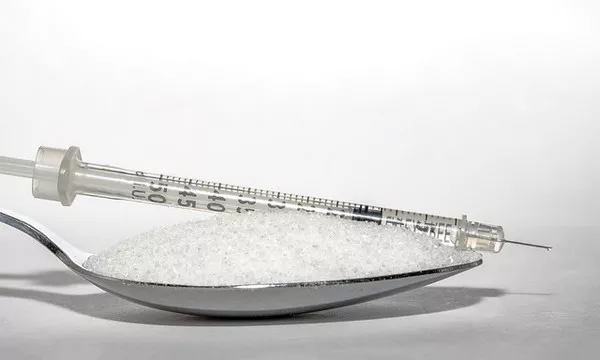In the realm of diabetes management, the myriad of dietary advice can be overwhelming. This complexity is heightened for the over 400,000 Singaporeans living with diabetes, a figure expected to exceed one million by 2050 according to the Ministry of Health. Understanding which dietary recommendations are valid is crucial for maintaining health and managing blood sugar levels. Experts from SingHealth Polyclinics, including Associate Consultant Dr. Tan Yu Quan and Dietitian Tan Yan Lin, shed light on common misconceptions about diet and diabetes.
Can Intermittent Fasting Aid in Blood Sugar Control?
Intermittent fasting has gained popularity as a weight loss strategy, with many advocating its benefits for diabetes management. “Weight loss in overweight and obese individuals with diabetes can enhance blood glucose control,” explains Dietitian Yan Lin. However, she emphasizes that this improvement is primarily attributed to weight loss rather than the fasting method itself. Current research on intermittent fasting yields inconsistent results regarding its impact on glucose metabolism, necessitating further studies to assess its long-term effects and sustainability.
Additionally, intermittent fasting can pose risks such as hypoglycemia, particularly for those on specific diabetes medications or insulin. Yan Lin advises caution, noting that excessive carbohydrate intake during eating periods can lead to hyperglycemia. Above all, she stresses the importance of balanced nutrition, stating that any dietary method must supply essential nutrients to avoid potential deficiencies.
Understanding Diabetes Diagnoses
Dr. Tan Yu Quan outlines key parameters for diagnosing diabetes, which include monitoring blood sugar levels and HbA1c levels—an indicator of average blood glucose over three months. Pre-diabetes is defined by an HbA1c level of 6.1% to 6.9% and a fasting blood sugar level of 6.1mmol/L to 6.9mmol/L. A confirmed diabetes diagnosis occurs when HbA1c levels reach 7% or higher and fasting blood sugar levels hit 7mmol/L or above.
Sustainability of dietary methods is also vital. Dr. Tan notes that if intermittent fasting leads to lethargy or negatively impacts social interactions, it may not be the best choice for an individual. Consulting a dietitian is recommended before making significant dietary changes.
Fruits: Friend or Foe?
Confusion often arises regarding fruit consumption among diabetics, with many advised to avoid high-sugar options like mangoes and bananas. Yan Lin debunks this myth, asserting that no fruit is inherently better or worse for diabetics. “While fruits may have varying sugar contents, they provide vital nutrients and phytochemicals. Variety is key, with a guideline of two servings of fruit daily being beneficial.”
Contrary to popular belief, the glycemic index (GI) of foods does not provide a complete picture of their impact on blood sugar. “Total carbohydrate content plays a larger role in blood glucose levels than GI,” Yan Lin explains, reinforcing the importance of portion control.
The Juice Dilemma
When it comes to fruit juices, Yan Lin strongly advises opting for whole fruits. “Fresh fruits are preferable to fruit juices, which often lack fiber and are high in natural sugars,” she warns. Juice can lead to rapid sugar absorption and potential spikes in blood sugar levels, making moderation crucial.
The Sugar Spectrum: A Common Misconception
Many believe alternatives like honey, brown sugar, or coconut sugar are healthier options for diabetics. Yan Lin clarifies that all types of sugar affect the body similarly, and none are superior for diabetes management. However, she highlights that artificial sweeteners, such as stevia, do not elevate blood sugar levels and can aid in weight control.
While observational studies have raised concerns about the negative effects of sweeteners, the evidence remains inconclusive. “Many individuals who use sweeteners may already be at risk for other health issues, not necessarily due to the sweeteners themselves,” Yan Lin notes.
Navigating High-Fat Foods
High-fat foods often present a mixed bag for diabetics. While fats can slow blood sugar spikes, they also pose a risk for weight gain. Dr. Tan suggests that fats should comprise 25% to 30% of daily caloric intake, advocating for healthy sources like olive oil, nuts, seeds, and fatty fish while limiting saturated and trans fats.
The Role of Supplements in Diabetes Management
With the rise of alternative supplements for blood sugar control—such as bitter melon and cinnamon—Dr. Tan urges caution. “There is no substantial evidence supporting the efficacy of these supplements for blood sugar management,” she states. Although natural supplements are often perceived as safer, they lack the regulatory oversight that pharmaceutical medications have.
Before starting any new supplement, consulting a healthcare professional is essential to ensure it doesn’t interfere with prescribed medications. Dr. Tan recommends using supplements as complementary aids alongside conventional treatments, closely monitoring blood sugar levels throughout.
In conclusion, managing diabetes through diet requires discerning fact from fiction. Individuals should always seek professional guidance before embarking on any dietary changes to ensure their choices align with their health needs.
Related topics:
Intensive Diabetes Treatment Shown to Alleviate Gum Disease
New Rice Variety May Help Combat Rising Diabetes Rates, Say Filipino Scientists


























